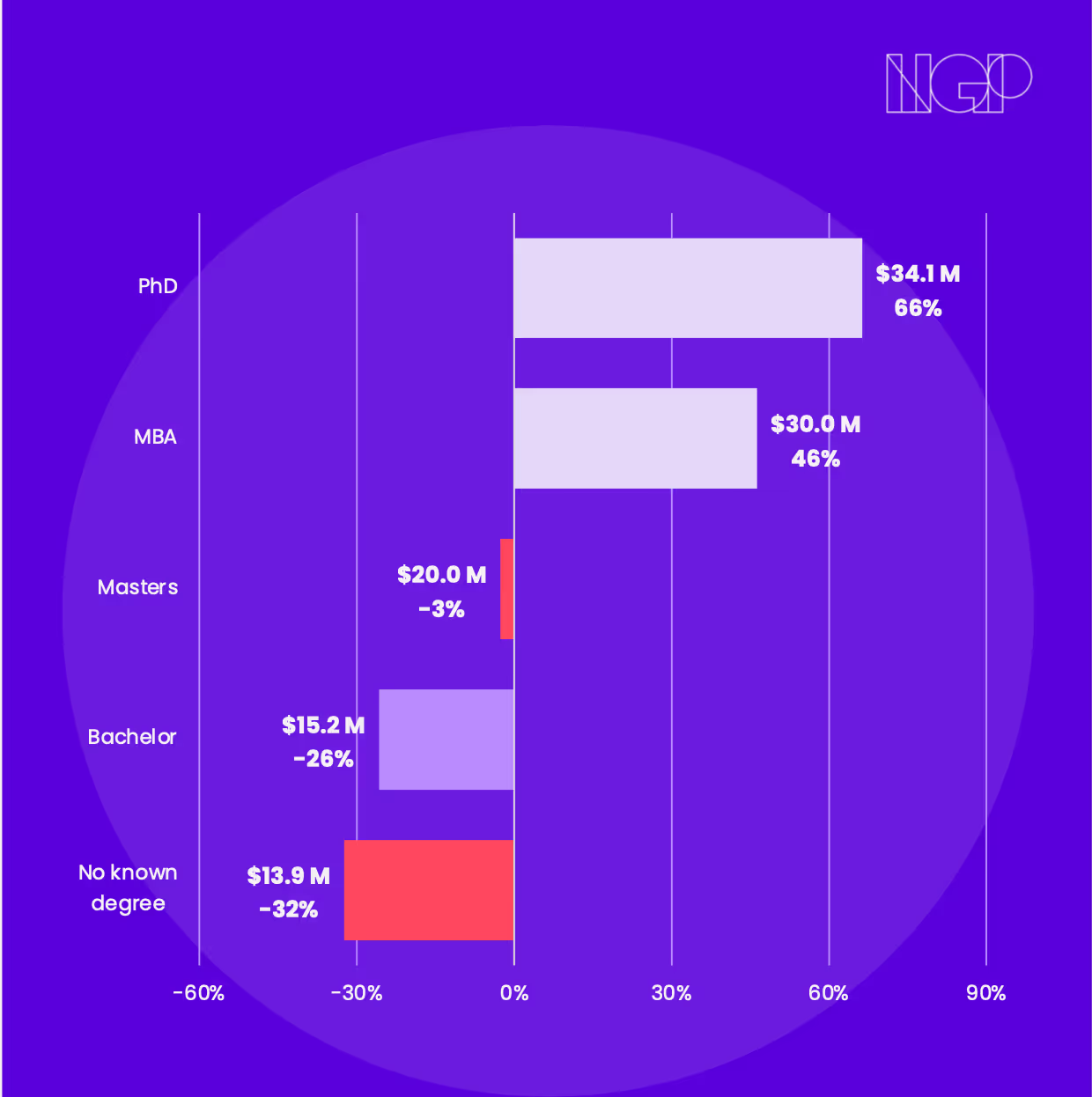What do Europe’s best-funded startups have in common? A look at a decade of European startup founders
Read the report
Listen now
Today we have unveiled the results of our latest comprehensive data report, "A Decade of European Startup Founders." A new research offering an unparalleled examination of the European startup ecosystem and the visionary founders who have driven its growth over the past ten years.
The report dives into the details of 17,836 tech startups founded in Europe since 2014, analysing the characteristics of their 31,644 founders, to uncover the shared traits and qualities that distinguish the region's most successful startup founding teams.
By scrutinizing the impact of factors such as team size, academic background, prior work experience, and skill set, the report reveals how these elements influence a founding team's ability to attract investment and transform their ideas into companies.
The analysis reveals some compelling insights which demonstrate Europe's unique startup ecosystem, which differs significantly from Silicon Valley's emphasis on purely tech-focused founders. Highlighting that Europe’s top universities serve as breeding grounds for highly funded startup founders; a PhD qualification can be a significant advantage for aspiring entrepreneurs; and a stint at a prestigious consulting firm are worth their weight in gold, when it comes to securing funding.

However, the report also sheds light on other crucial characteristics that have significantly shaped the European startup landscape over the past decade:
Key Findings [i]
1. Advanced degrees boost funding: Founders with advanced degrees, especially PhDs and MBAs, secure significantly more funding than those without. Within the top 10% best funded startups, PhD founders raise €34.1M - 66% more than their peers. MBA holders follow closely, securing €30.0M. In contrast, bachelor's degree holders and those without formal degrees raise significantly less (€15.2M and €13.9M, respectively).
2. Where founders went to university matters (and UK universities are producing the most successful founders): Alumni from UK universities, including Cambridge, Imperial College London, Oxford, UCL, and LSE have created the most startups compared to other European tech hubs. Cambridge, INSEAD, and Oxford, in particular, lead on securing funding, with Cambridge alumni raising $11.2 billion, INSEAD $7.6 billion, and Oxford $7.3 billion.
3. Working for a major consulting firm is a launching pad for European founders: Ex-Consultants dominate Europe’s startup scene, with McKinsey, Bain, & BCG alumni leading the pack.
4. Experience matters: Serial founders, those with previous startup experience, raise 45% more than first-time founders.
5. Four is the magic number: The optimal founding team size for fundraising is four co-founders. With four-person teams raising a staggering 208% more ($48 million) than two-person teams.
6. Mixed skills advantage: Teams with a blend of technical and non-technical founders excel in fundraising. The top 10% of these teams raise $29.3 million, 43% more than the top 10% overall. Technical founders in top teams raise $20 million, while operator-led teams raise $16.2 million and sales-led teams raise $7.1 million.
7. International teams excel: Teams with at least one international (or foreign-born) founder achieve higher funding outcomes, with the top 10% raising 53% more ($9.5M) than fully local teams. The UK has the highest percentage of teams with international founders (39%), outpacing Germany (28%), the Nordics (21%), and France (16%).
8. Mixed-gender teams outperform single sex founders: All-male teams raise significantly more than all-female teams, however, mixed-gender teams outperform both, with the top 10% raising 25% more than single sex founders.
"The challenge for Europe's tech ecosystem lies not only in building more successful startups but also in nurturing the next generation of tech companies and founders."
Bo Ilsoe, NGP Capital’s Managing Partner, said: “I’ve been fortunate to have had a front row seat witnessing the evolution of the global startup ecosystem over the past two decades, and it’s clear to me that Europe’s tech scene is charting its own course. While Silicon Valley often prioritizes tech-heavy founders, Europe’s ecosystem champions academic pedigree, and diverse skills in its founding teams. In Europe, the strength of your CV, your founding team and your academic background matter, and while this unique blend offers a fertile ground for innovation and a wealth of opportunity for startups, the challenge for Europe's tech ecosystem lies not only in building more successful startups but also in nurturing the next generation of tech companies and founders. That may mean we need to embrace a more diverse set of founders in the future, but it’s only by understanding the factors that have driven success historically that European startups can position themselves as global category-leaders.”
The ‘Decade of European Startup Founders’ report is based on data from NGP Capital’s dealflow engine, Q, which aggregates information from hundreds of sources.
About the data:
[i]We focus our analysis on the top 10% of founders, those who raised the most funding. These top performers secured at least $20.5 million in funding, emphasizing a significant disparity in funding levels. Unless explicitly stated, all analyses compare the top 10% of fundraisers across various factors, using the $20.5 million raised by the overall top 10% as a benchmark. Our goal is to examine the exceptional cases: the teams that achieve the most significant and widely recognized results.

.svg)





.svg)









